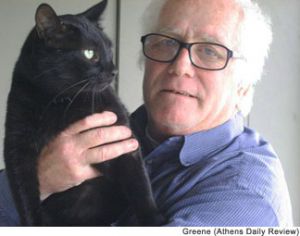
In September 2011, the U.S. Department of Labor (DOL) proposed changes to agriculture child labor regulations for kids under 16. Those rules would have put restrictions on the operation of tractors, and prohibited many animal husbandry practices such as branding, breeding, dehorning, vaccinating, castrating, and treating sick or injured animals.
Rural Henderson County was furious at the idea.
Pct. 2 Commissioner Wade McKinney, who said he learned how to drive a tractor at age 7, was one of those leading the local charge against the measure. He said working on the farm gave him “an awareness of circumstances around me. It taught me to think, and it has for everyone that has grown up in an agricultural background.”
“It gives you an awareness of the world that, in my opinion, that is lacking as we get farther away from an agrarian society,” he said.
Rural families around the country protested, and the DOL received more than 10,000 comments, nearly all negative, on the proposed rules change. Washington, D.C. heard the uproar.
On April 26, the U.S. Department of Labor announced it was dropping proposed changes.
“This ruling means that rural America will continue with its traditions of family farms and ranches, neighbors helping neighbors, and the free exercise of learning and living an agricultural way of life as we have for generations,” McKinney said after the announcement. “The circumstances associated with this way of life have helped to instill a work ethic in our children that extends well beyond their childhood.”
“This issue was a direct assault on my way of life,” he said. “If I hadn’t had the opportunity and the freedom to grow up in this very fashion, I would not be the person I am today. My life is the product of at least four generations of farmers and ranchers passing a tradition down to me. I am currently passing that same tradition down to my son and to have been prevented from doing that would have been a travesty to me.”
Congressman Jeb Hensarling said, “Working on a family farm provides youth the opportunity to gain valuable skills, earn money for education, and learn the value of hard work, character, and leadership. While it is essential to ensure the safety of all workers, decisions on who can work when and where are best left to the individual families, farmers, and ranchers of East Texas—not bureaucrats in Washington.

